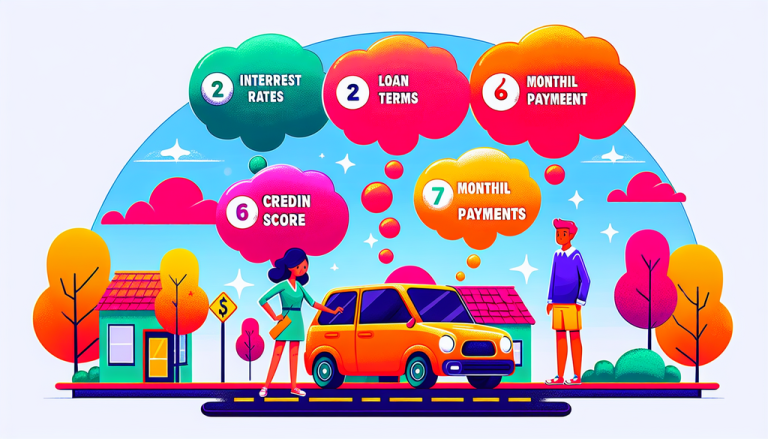Thinking about financing your dream ride? Buckle up – getting a car loan isn’t just about signing papers. It’s a financial journey that can make or break your budget.
1. Your Credit Score Matters More Than You Think
Your credit score isn’t just a number – it’s your financial reputation. A strong score can unlock lower interest rates, potentially saving you thousands over your loan’s lifetime. Aim for 680 or higher to get the best deals.
| Credit Score Range | Typical Interest Rate |
|---|---|
| 300-579 | 14-20% |
| 580-669 | 8-13% |
| 670-739 | 5-7% |
| 740-850 | 3-4% |
2. Budget Beyond the Monthly Payment
Don’t get trapped by the “affordable monthly payment” mirage. Factor in insurance, maintenance, fuel, and potential repair costs. A $300 monthly payment might balloon to $600 when you calculate total ownership expenses.
3. Loan Terms Are Not One-Size-Fits-All
Longer loans mean lower monthly payments but higher total interest. A 60-month loan might seem attractive, but a 36-month term could save you significant money in the long run.
4. Down Payments Are Your Secret Weapon
The more you put down, the less you borrow. A 20% down payment can reduce your interest rate, lower monthly payments, and help you avoid being “underwater” on your loan.
5. Pre-Approval: Your Negotiation Superpower
Get pre-approved before hitting the dealership. It gives you negotiating leverage and helps you understand exactly what you can afford without dealer pressure.
6. Watch for Hidden Fees and Extras
Extended warranties, gap insurance, and dealership add-ons can inflate your loan. Read the fine print and understand each additional cost before signing.
7. Explore All Financing Options
Don’t limit yourself to dealer financing. Credit unions, online lenders, and banks often offer more competitive rates. Shop around and compare at least 3-4 options.
Remember, a car loan is a long-term commitment. Take your time, do your homework, and make a decision that fits your financial reality.



